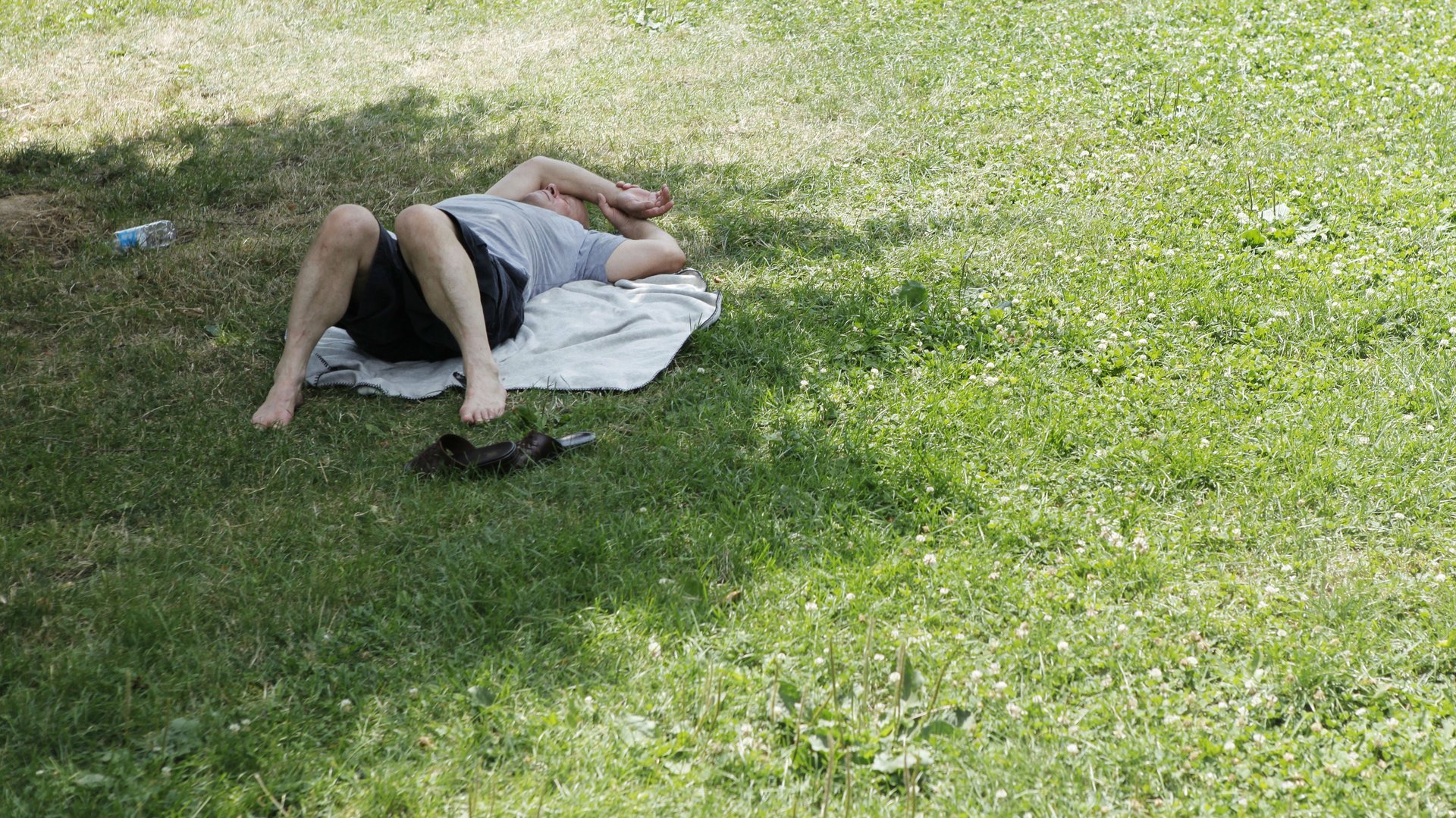There’s a scientific excuse for why summer makes you so lazy
As great as it feels to bury your jacket in the back of the closet, break out the shorts, and plan weekend trips to the beach, there’s always a point in the deep summer where the heat starts to feel like too much.


As great as it feels to bury your jacket in the back of the closet, break out the shorts, and plan weekend trips to the beach, there’s always a point in the deep summer where the heat starts to feel like too much.
Hot weather actually slows your body down. The hotter it is, the more energy you need to expend to keep yourself cool, which can mean activities you’re used to doing easily—whether it’s walking around outside or exercising at a certain intensity—take more effort.
But the good news is, we can adapt relatively quickly. “Even within one or two sessions [of heat exercise], the body is already adapting,” says Santiago Lorenzo, a physiologist teaching medicine at the Lake Erie College of Osteopathic Medicine in Bradenton, Florida. “Then the more that you do it, the better you start feeling.”
After only a day or two in the heat, we start producing more plasma, the liquid portion of our blood. Some evidence has suggested that our bodies generate as much as 13% more (pdf, p. 478) plasma once our bodies have become fully adjusted to the heat, which means that a larger volume of blood gets circulated through our bodies. Not only does this bring more oxygen to the muscles (which they then use to generate energy), it also help regulates body temperature: ”You can increase more blood flow to the skin to help you cool off,” Lorenzo says.
If we stay active in the heat for a week to 10 days, our bodies continue to adapt. Our sweat glands kick into high gear in an effort to cool our skin off more quickly, and our hearts even start to pump blood more efficiently to the rest of our bodies. We’re also able to take in more oxygen when breathing heavily. Generally, after about two weeks of being in the heat—whether you’re just going about your day or exercising—your body will have adapted to handle more heat.
For athletes, heat acclimatization can actually help with training. Lorenzo, who himself is a former Olympian decathlete, found in a small trial that athletes’ performance improved when they added some training at about 100°F with 30% humidity. He worked with 12 cyclists who visited his lab once a day for 10 days to cycle in a hot environment. At the end of the 10 days, those cyclists were able to generate 8% more power on an hour-long performance test compared to a control group of eight athletes.
Heat acclimation or training does not guarantee better performance, though, and it comes with risks: Heat adds stress to our bodies, and can result in heat stroke if we’re unable to keep our core temperature at a normal level through the usual means like sweating, drinking cool water, or simply getting out of the sun for a bit.
Eventually, heat acclimatization wears off. During the first cold snap of the fall (or even if you take a summer trip to the other hemisphere) those of us who have gotten used to the heat will still pump more blood through our bodies, and be quicker to start sweating. But soon, these adaptations—like our tans—will eventually fade away. And next time your back in the heat, you’ll be moving like molasses until your can adapt again.
We at Quartz are insatiably curious. We bring you the best timely research in science and technology, but in Funny you should ask, we’ll tackle timeless questions. If you have some, submit them here.